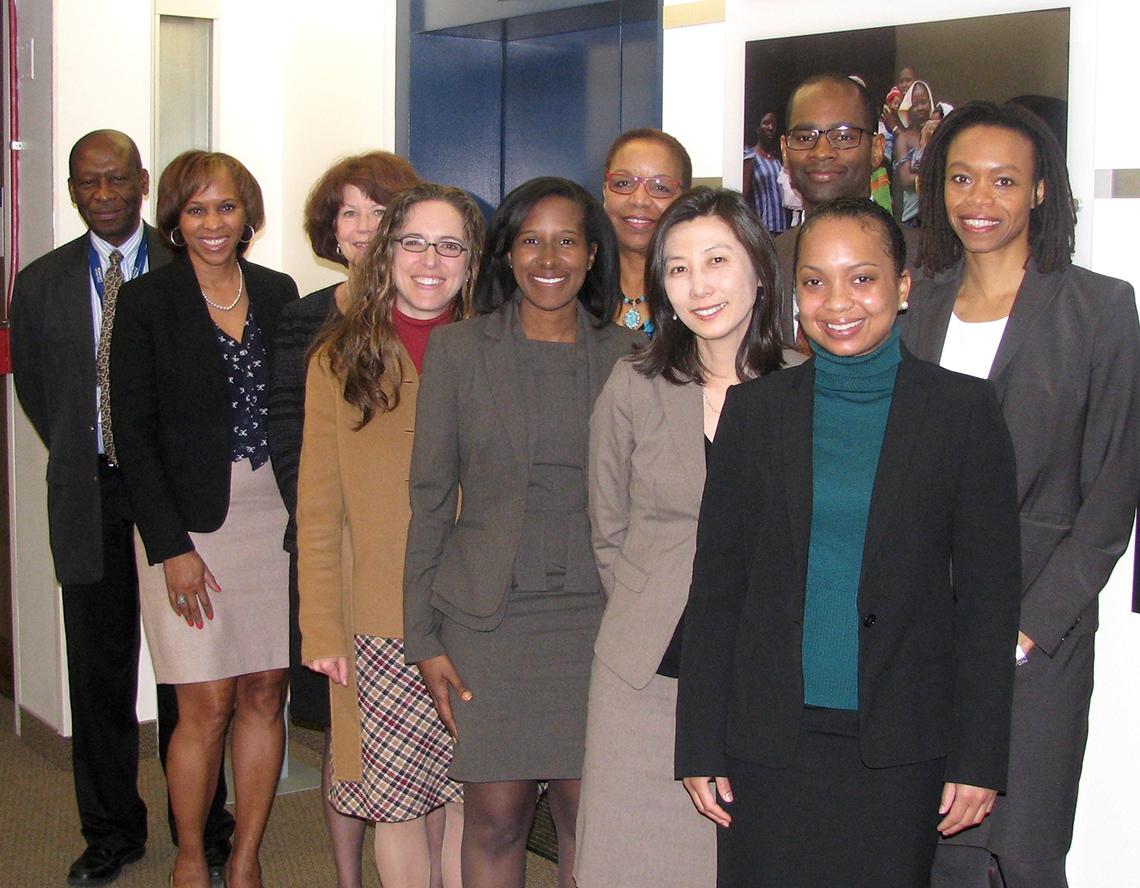Harvard’s Mongan Fellows Visit NIH

Photo: Whitney Anderson
The National Institute on Minority Health and Health Disparities recently hosted a visit by the Harvard University Commonwealth Fund Mongan fellows in minority health policy. The event capped the fellows’ week-long Washington, D.C., tour.
The 1-year fellowship is designed for minority physicians to prepare them for leadership roles in health care delivery.
This year’s visiting fellows included five physicians, each with different disciplines and backgrounds.
Dr. Jane Atkinson, chief of NIDCR’s Center for Clinical Research, said the best indication of a person’s lack of health is unfilled cavities, often seen in people of lower socioeconomic status and minority groups. One of the most pressing disparities in the field, she said, is oral cancer. While improvements have been made to reduce mortality, African-American men continue to have a lower survival rate than that of their Caucasian counterparts.
Dr. Pamela Collins, director of NIMH’s Office for Research on Disparities and Global Mental Health, said a major disparity in the U.S. is untreated psychosis. Many who experience this illness won’t seek immediate medical help, going without a diagnosis and subsequent treatment for more than a year.
“In the U.S., people actually spend a year and a half without seeking medical care,” Collins said.
Dr. Lawrence Agodoa, director of NIDDK’s Office of Minority Health Research Coordination, discussed his institute’s participation in the Step Up program and the overall goal to diversify the biomedical research field.
Dr. Brett Miller, director of NICHD’s Reading, Writing and Related Learning Disabilities Program, emphasized his group’s focus on childhood normative development and the risks of not achieving that development due to abuse and neglect.
Dr. Leah Miller, a research program officer in the Office of Research on Women’s Health, discussed ORWH’s emphasis on the inclusion of sex as a biological variable when conducting medical research.—Whitney Anderson
